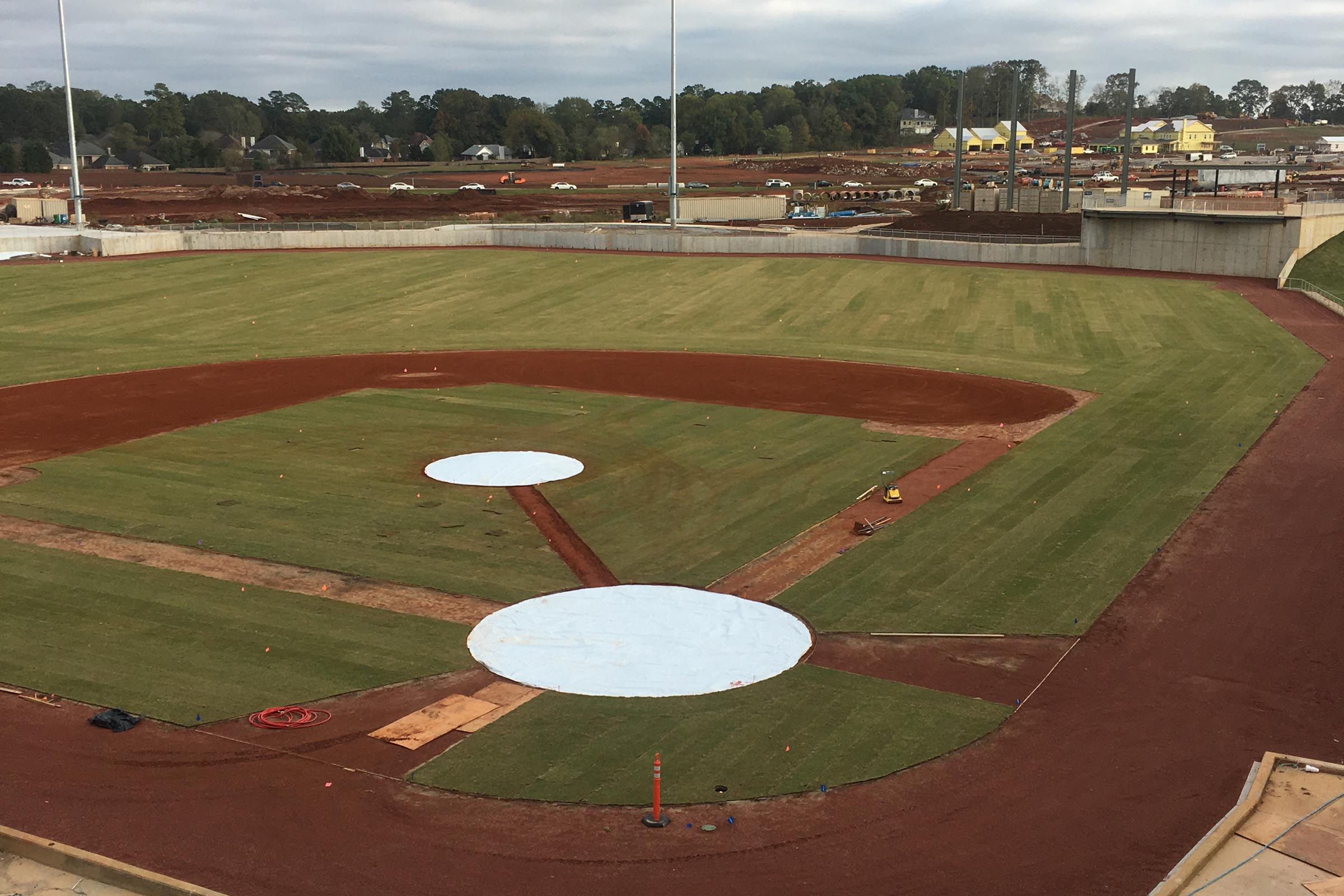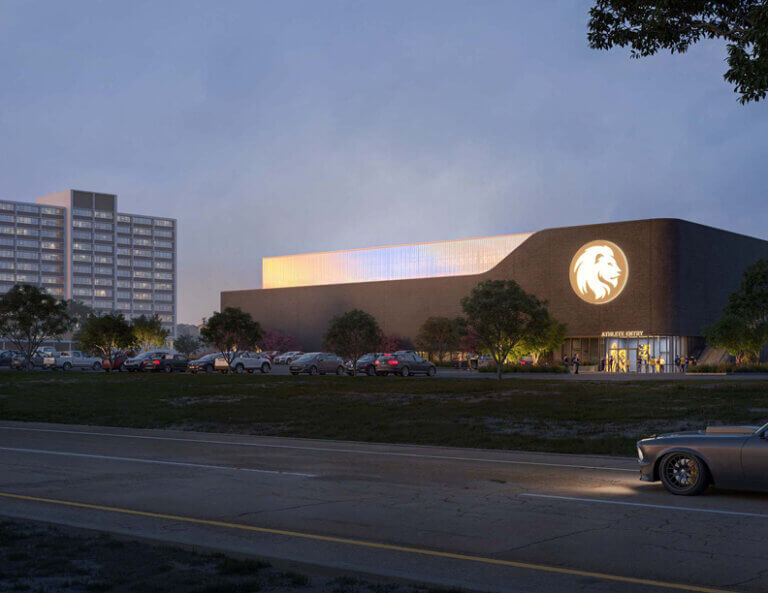
This article by Christina Herrick first appeared on the Athletic Turf website.
For Hoar Construction, the process of installing a new turf field as part of the $40 million Rocket City Trash Pandas‘ new ballpark construction project for Toyota Field in Madison, Ala., was an unknown challenge. It was Hoar Construction’s first sports turf installation and one that required installing 102,000 square feet of Tifway 419 bermudagrass.
“Building a field is a lot more intense than general landscaping that you do around a shopping center or apartment complex,” says Michael Raymond, assistant project manager at Hoar Construction.
Hoar Construction worked with trade partner SGC Fields to identify the best sod for the job, which turned out to be Tifway 419 from Tri-Turf Sod Farm in Paris, Tenn. The turf was originally grown to re-sod the Tennessee Titans’ practice field until the Titans opted for another type of turf better suited for football. Raymond says Tifway 419 is best suited for baseball diamonds. Tifway 419 is also unique in that it has a 12- to 18-month growth cycle before harvest.
An interesting component of this project, Raymond says, was finding that delicate balance of the right soil for the turf. And this is where Hoar Construction’s partner, SCG Fields, assisted.
“You can sit on the front end of a job and find the perfect sand that matches the specs, but if that perfect sand that matches the specs doesn’t match the perfect grass that’s grown in for that area, then the sand doesn’t work,” he says.
Raymond says he lost count of the number of quarries they approached for the project to get the right mix for the root zone which required a hybrid mix of 95 percent sand and 5 percent peat/organic material.
“It was the fine line of organics and porosity. We’d find one that had the perfect amount of porosity but then it wouldn’t have enough organics,” he said, noting a topical solution to boost organics could harm the porosity. “We ended up finding a suitable sand that was dredged out of the Ohio river and barged to Decatur (Ala.) and then trucked from Decatur to Madison,” he said.
More than 7,000 tons were barged down the Mississippi River to the Tennessee River. Crews tested the mix every 500 tons.
“The process we used for the sand is very comparable to medical testing. We conducted a ‘physical’ every 500 tons, and then we did ‘bloodwork’ every 1,500 tons,” Raymond says. “There was simply no room for error, and that commitment to excellence ensured a final product that we believe is one of the best playing surfaces anywhere in the minor or major leagues.”
And then, came the challenge of harvesting and transporting the 102,000 square feet and more of sod needed for the project which happened in October. Raymond says the team had 24 hours from harvest to transport and plant the sod. The trip from Paris, Tenn., to Madison, Ala., is about four hours. Another level of complexity was Mother Nature — it had rained for seven days in a row before the turf was harvested.
“Credit to [SCG], they weren’t concerned about the 24-hour window, they were more concerned about the quality of the product going down,” he says. “After it’s all said and done, they rejected about 35, 36 rolls of sod.”
There were a good two and a half to three weeks of grow-in once the sod was laid in October.
“In our first four days of planting have a great grow in period. For the areas around the tunnel, the weather caught up to it,” Raymond says.
The field was top-dressed and ryegrass was overseeded.
Toyota Field will be the new home of the Rocket City Trash Pandas, the Double-A affiliate of the Los Angeles Angels. Construction on the project is set to be completed this month in plenty of time for the Trash Pandas’ first home game on April 15.
This 82,328 square-foot 7,500 fan-capacity ballpark is the anchor in the city’s Town Madison mixed-use development.
“Our owner on this project, the city of Madison, has been a great owner to work with,” Raymond says.
And other partners on the project include BallCorps LLC (tenant/team owner), Populous (architect), Thorton Tomasetti (structural engineers), Henderson Engineers (MEP), Mullins LLC (civil engineers), and Turner Construction (construction management agency).

